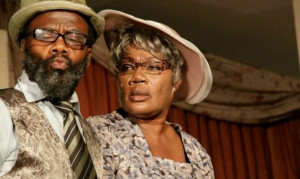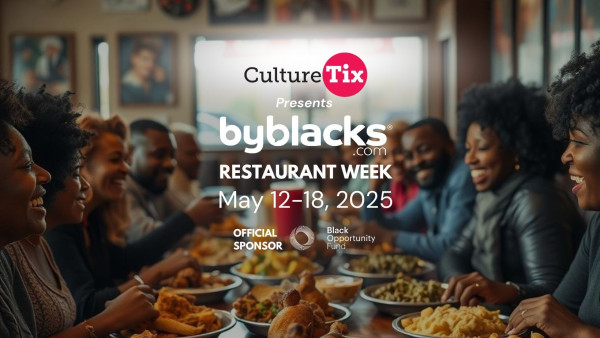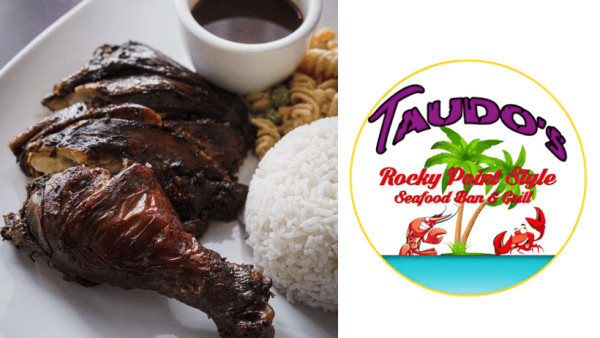The meeting of the Anti-Racism Directorate opened with a prayer by Indigenous Elder Bob Goulais. The moderator, Paulette Senior, noted there was no doubt the audience was actively engaged, which she said was a good thing. The room was packed to its 300 person capacity with several more people cramming into an overflow room.
The issues brought up by the public included: policing, education, child welfare, health, employment, Caribana funding (with someone using the term -- “Black Money Matters”), housing, and much more. Things ranged from the provincial to the municipal [Mayor John Tory was the object/subject of many comments] to the school boards [anti-black racism within the school system).
What was to be a 2-hour session, 7:00 p.m.-9:00 p.m. was extended by an hour and the politicians got an earful.
When she got her opportunity to speak at the mic, poet and author, Nadine Williams, performed one of her poems, “Black Bwoi.” “I needed you guys to hear that (poem) before you hear this. Black lives do matter. I’m a black life and I matter,” she said, before expressing her disappointment with the conduct of the meeting.
Williams felt that the politicians were invited “to hear our grievances and instead we hurl insults at them" -- that was not her reason for being there.
“I sat in the Jermaine Carby inquest. I was the reporter and I was embarrassed. I was embarrassed, and I might get in trouble for saying I was the reporter,” said Williams. Her statement resulted in much shouting from some members of the audience.
Carby, a young black man, was killed by the police in Brampton in 2014.
Williams said as the court reporter – who sits just below the judge or coroner in this case, and beside the court clerk to record the court proceedings -- at the Carby inquest she was embarrassed by the behaviour she saw displayed by Black Lives Matter during the proceedings.
Members were present daily throughout the two-three-week proceedings, she said. “And to see what I deemed to be an escalated continuation was the trigger for me to stand up and say - if this is the conduct they're exhibiting then they certainly do not speak for me,” she said regarding her comment: “Black Lives Matter Toronto does not speak for this black lady.”
“I have never known such public disorder and though I myself was really, really, upset at the findings of the inquest and had to request breaks a few times... order must be the rule of the day,” she said in text responding to this story.
Williams said she left upset because she had care of her young cousin at the meeting. “And what I thought was an evening for dialogue with our policymakers was an eye-opening disrespectful fiasco that triggered the embarrassment I felt after court closed, and I was the only black face among a sea of white faces, and all I could think is please know that not all black people behave this way.
Overall, it was an evening to engage politicians in the hurt, pain, frustration, disappointment, that racialized people, especially black people encounter daily As Akua Benjamin noted, the fight has been going on for 50 years. Benjamin, of the Anti-Black Racism Network told the politicians that there has not been a time in the last 50 years when Black Canadians have not marched in the streets of Ontario over anti-black racism.
She said the young people of Black Lives Matter – Toronto (BLMTO) are “our children” and decried what she describes as “the pipeline from the community to the school to the jail” for many black young people. The founding member of the Black Action Defense Committee said fundamentally at the roots of this, is anti-black racism.
In April, Premier Wynne met with members of BLMTO outside the legislature and agreed to their demand for a public meeting to address anti-black racism. For 15 days, the group had held a protest outside police headquarters calling for an inquest into the police shooting of Andrew Loku, an end to the practice of carding by police and other issues of anti-black racism.
The July 14 meeting – the first of twelve across the province – drew hundreds of Ontarians to Daniels Spectrum in Toronto. Many formed a long line to speak quite frankly to their elected leaders. The meeting was held to focus on anti-black racism, as well as anti-indigenous racism and racism experienced by other communities, and Islamophobia.
“I want to thank organizations that have been fighting against racism for years because now I think that there’s a new tone that’s been set in Canada, in Ontario but also around the world. And governments have to respond, there’s no option, they have to be part of that solution,” said Michael Coteau, Minister of Children and Youth and the minister responsible for the anti-racism directorate.
Acknowledging the mood around her, Premier Wynne said, “I understand this is not a new conversation and every time we come at it. We come at it to try to take our society to that next level of living up to what we say we are, which is a pluralistic, harmonious equitable society. That’s how we see ourselves but that’s not what we have lived and I understand that.”
“I understand that governments, institutions, have not lived up to that so, I know that systemic racism exists. I know anti-black racism exists. I know that black young people do not have the same experience as white kids. I understand that indigenous kids don’t have the same experience as white kids and I know that at this moment in our history, our shared history, we’re dealing with anti-black racism, we’re dealing with racism against indigenous people. We’re dealing with Islamophobia and all that confluence of things is creating an opportunity for us to have the next conversation so those of you who are pushing us and who are -- not just here in Ontario but across the country, across the continent -- who are pushing us to have that next conversation that’s a very good thing and I’m grateful for that as a member of the government."
“So, I believe we can do better. I believe that there are people, however, who would like to see us go at each other’s throats. I think there are people who would like to see even this meeting dissolve into anger and dissolve into a chaotic encounter, and I want you to know that I hope that doesn’t happen. If it does, we’ll try again. But I don’t believe that we have to do that, I believe that we can find a better way. I believe that we can do better as government, as society, whether it’s provincial, whether it’s municipal, whether it’s federal, I believe we can do better, otherwise I wouldn’t be here."
“And so, I look forward to hearing your experiences and hearing your advice for all of us on how we can do better. That’s why we’ve set up the Anti-Racism Directorate but that’s not the first thing and it’s not the last thing that we’ll do and so I look forward to hearing from you, and thank you again for coming here, and I…”
“Your civility is killing me. I don’t want to be civil. I want to be uncivil,” shouts Rinaldo Walcott, an activist, to the premier.
“There’s nothing wrong with chaos,” he said, to which Wynne replied, “I understand being uncivil. I get that cause anger, anger is part of this, of course, you’re angry.”
“I’m not angry. I’m disappointed,” says Walcott.
“Okay, well, you know what, you’re going to come up and tell me about that.”
“I’m not going to tell you anything because you know why, you know why I’m disappointed. What you need to do is to do your job,” said Walcott, to thunderous applause.
“Part of doing my job is acknowledging that we haven’t done enough. I’m sure all of you have heard the speeches that have been made in the States but for us to pretend that somehow our history just goes away because we pass a law or we pass a policy. We have to acknowledge that the years, the decades, the generations, whether it’s residential schools, whether it’s slavery – all the things that we have experienced together that are part of a bad history, those are the things that we need to tackle, ” said Wynne.
The government says the community meetings will help further public dialogue, receive input on the Anti-Racism Directorate’s mandate, and identify priority areas for the directorate as it applies an anti-racism perspective to government policies, programs and services.
Meanwhile, the mayor announced that he will be holding a series of meetings with BLMTO and others, starting in September.
This article is revised to include the comments made by Nadine Williams at the meeting, some of which were inaudible because of the shouting from members of the audience. This writer regrets the assumptions and misinterpretation made in the previous piece.
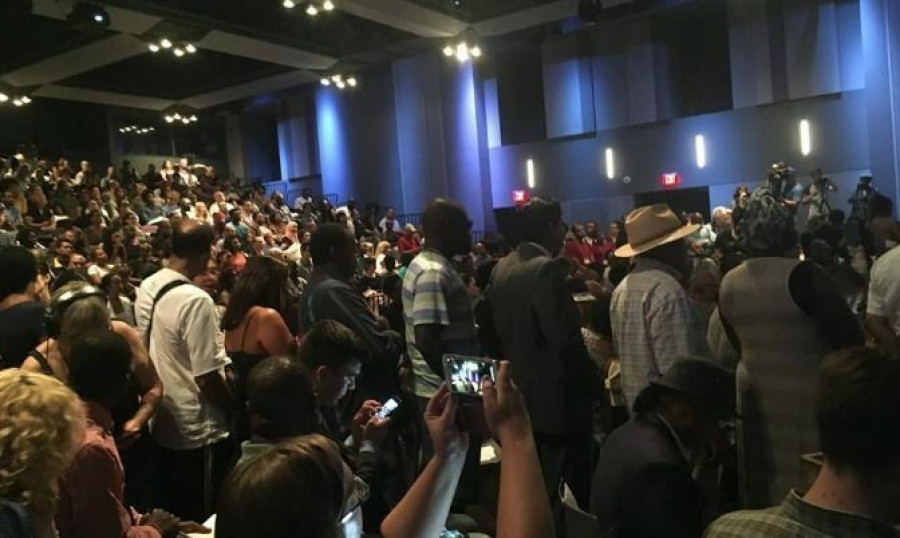
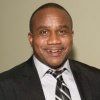 By
By 




